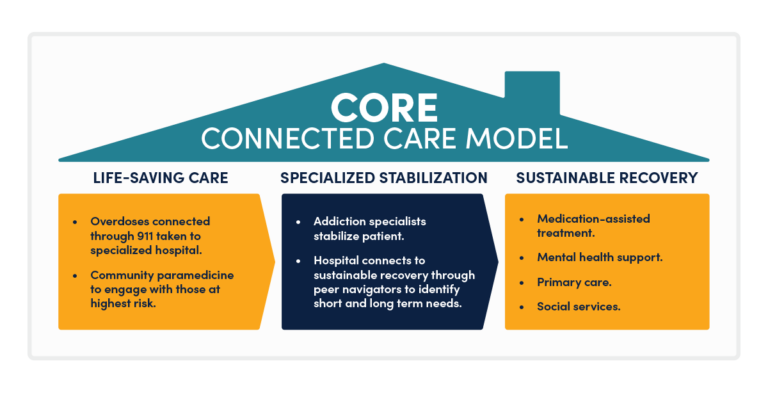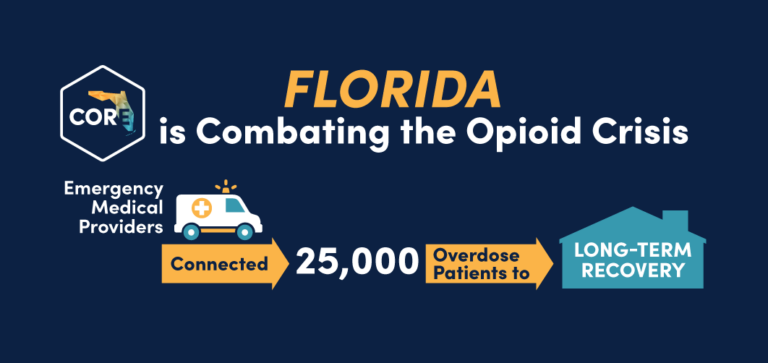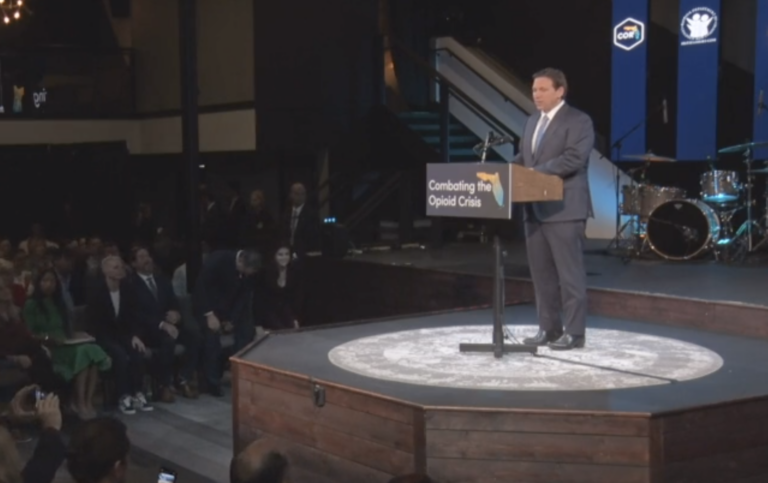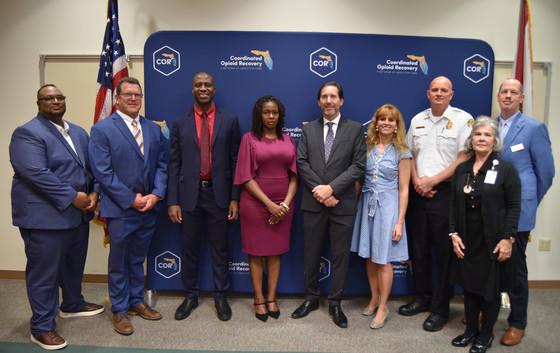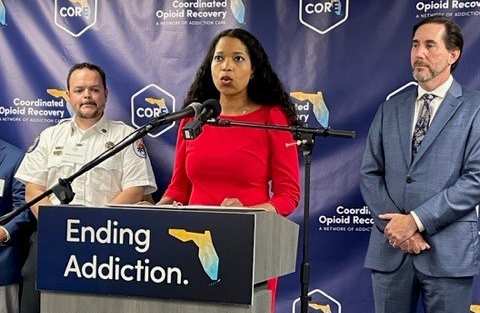Statewide
Florida Public Health and Safety Alert: Fentanyl Overdoses
The Florida Department of Health has issued the following Public Health and Safety Alert.
The state of Florida has seen an exponential increase in overdoses associated with fentanyl. State agencies, including the Florida Department of Health, Florida Department of Children and Families, and Florida Department of Law Enforcement are working together to investigate and immediately address this public safety and health issue.
Fentanyl is a powerful synthetic opioid up to 100 times more potent than morphine. As little as two milligrams, about the size of 5 grains of salt, can be fatal.
Recent overdoses and deaths have occurred following use of illicit drugs, including marijuana, cocaine, and counterfeit prescriptions, as a result of these illicit substances containing fentanyl or similar extremely potent compounds. Individuals may not be aware that these illicit substances contain fentanyl and can be fatal.
In 2020, more than 6,150 people died from overdoses involving fentanyl and fentanyl analogs in Florida.[1]
For 2021, the latest provisional drug overdose death counts also indicate an increase in fatal overdoses caused by synthetic opioids.[2]
All Floridians are advised to remain vigilant of the signs of fentanyl overdose and current public risk, especially law enforcement, first responders, and health care providers.
What are the signs of an overdose?
An overdose involving fentanyl is similar to overdoses of other opioids, but it can initiate much faster and stronger than a typical opioid overdose. Overdose signs include:
- Small, constricted “pinpoint pupils.”
- Falling asleep or losing consciousness.
- Slow, weak, or not breathing.
- Choking or gurgling sounds.
- Limp body.
- Cold and/or clammy skin.
- Discolored skin, especially lips and nails.
What to do if you think someone is overdosing?
- Call 911 Immediately.
- Administer naloxone, if available.
- Try to keep the person awake and breathing.
- Lay the person on their side to prevent choking.
- Stay with the person until emergency assistance arrives.
What is naloxone?
Naloxone is a life-saving medication that can reverse an overdose from opioids, including heroin, fentanyl, and prescription opioid medications.[3] There are two forms of naloxone that anyone can use without medical training or authorization, nasal spray and an auto-injector. Naloxone quickly reverses an overdose by blocking the effects of opioids. It can restore normal breathing within 2 to 3 minutes in a person whose breathing has slowed or even stopped due to an opioid overdose.[4] More than one dose of naloxone may be required when more potent opioids like fentanyl are involved.[5]
HEROS (Helping Emergency Responders Obtain Support) is a Florida Department of Health program that provides free naloxone to emergency response agencies. Since the inception of the program in 2018, over 455,000 doses have been distributed to emergency response agencies in Florida through HEROS. All first responders in Florida are eligible to request free naloxone through this program.
If you or your organization are interested in obtaining or managing naloxone for the community, please visit I SAVE FL to find available resources through the Florida Department of Children and Families.
There are two types of fentanyl: Pharmaceutical fentanyl and illicitly manufactured fentanyl.[6]
What is pharmaceutical fentanyl?
Pharmaceutical fentanyl was developed to manage intense pain after surgery and is sometimes used to treat patients with chronic pain who are physically tolerant to other opioids.[7] Fentanyl may be administered as a shot, a patch placed on the skin or used as a lozenge. In prescription form, it is known by such names as Actiq®, Duragesic®, and Sublimaze®.[8]
What is illicitly manufactured fentanyl?
Illicitly manufactured fentanyl, which is most often associated with recent overdoses, is found in various forms including powder and liquid. This can be sold illegally as a powder dropped onto blotter paper, put in eye droppers and nasal sprays, or made into pills that look like other prescription opioids.[9] Fentanyl may be added to illicit drugs during their production without the drug user’s knowledge.[10] According to a U.S. Drug Enforcement Administration warning in September 2021, illegal drugs are usually made to look like prescription pills, available online, and sold through social media.[11]
What are the commonly used street names for illicitly manufactured fentanyl?
Apache, China Girl, China Town, China White, Dance Fever, Goodfellas, Great Bear, He-Man, Jackpot, Murder 8, and Tango and Cash.[12]
Where is assistance available?
Hope for Healing is a tool for Floridians to access help for mental health and substance abuse. The site is an aggregator of federal, state, local, private sector, faith-based and non-profit resources. The Hope for Healing initiative has focused not only on helping Floridians find resources in challenging times through state and local partnerships that use evidence-based best practices, but on addressing the stigma that is all too often associated with seeking help.
Hope Florida – A Pathway to Prosperity utilizes ‘Care Navigators’ to guide Floridians on an individualized path to prosperity by focusing on community collaboration between the private sector, faith-based community, nonprofits and government entities to break down traditional community silos, in an effort to maximize resources and uncover opportunities. ‘Care Navigators’ can help individuals identify their unique and immediate barriers to prosperity, develop long term-goals, and map out a strategic plan including finding support for those contending with substance use disorders.
__________________________
[1] 2020 Medical Examiners Commission Drug Report.
[2] Florida Department of Health (2022) Bureau of Vital Statistics.
[3] Lifesaving Naloxone from Pharmacies (2019). Centers for Disease Control and Prevention.
[4] Harm Reduction TO — Naloxone: Overdose Reversal.
[5] Opioid Overdose Prevention Toolkit (2018). Substance Abuse and Mental Health Services.
[6] Centers for Disease Control and Prevention, Fentanyl Facts.
[7] U.S. Drug Enforcement Administration.
[8] National Institute on Drug Abuse.
[9] ID. 3
[10] Public Health warns of rise in opioid overdose visits to emergency departments (2021).
[11] DEA Warns of Sharp Increase in Fake Prescription Pills Laced with Fentanyl and Meth (2021).
